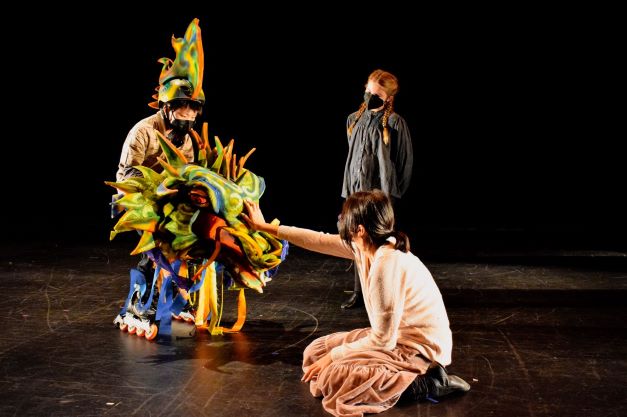Several years after I completed an undergraduate degree, my university reached out to me. To my surprise, they weren’t asking for money; rather, the Studio Art Department was politely requesting that I fill out a survey detailing how I was using my art degree after my time at the university.
A young teacher at the time, I had just finished earning a Masters in Education, focusing on teaching English, as English literature had been my other undergraduate major.
“Huh,” I said, looking at the survey, leafing through the questions. “I’m not sure I’m the best person to fill out this survey,” I mentioned to my wife. “I’m not exactly using the art degree right now.”
She laughed at me. “Actually,” she said, “I think you use it every day—even more than your other ones.”
“Really? It’s not like I’m painting much.”
“No. But aren’t you drafting lessons? Revising them? Improving your skills in front of the classroom? Sure, you learned how to paint. But really, you learned how to learn from mistakes, to improvise, to improve, even though perfection isn’t possible.”
“Um…ok. You’re right.”
Her words continue to reverberate for me, especially as I watch our students find themselves in the arts. There’s an alchemy in developing skills in music or theater or visual art or digital arts or one of the many other art disciplines we offer…and then combining them with others’ talents. If you were lucky enough to witness the recent student production Beneath the Moon, you understand: our talented students, with the help of the faculty and staff, swirled together seemingly disparate stories and images, along with seemingly disparate disciplines within the arts and academics, and from that potion, they created a powerful, moving pastiche of story.
After the performance, one of the seniors spoke eloquently about the experience, about how much the past few months, devoted to this play, meant so much to them all. Yes, the final product was important. But so was the process. So were the mistakes, and the frustrations, and the tears, and the giggles. So was the trepidation of taking a risk, of being less than perfect. Because lines would be flubbed. Mics would mysteriously cut out occasionally. Someone would be in the wrong spot.
But it all worked out beautifully, sometimes in spite of the imperfections, sometimes because of them.
Our world commodifies outcomes, focusing so much on product that we lose appreciation for the flow of process. The arts—at least in high school—are the antidote to that degradation. Because when our kids are focused too much on the grade or the praise or the perfection, the arts courses breath permission into their lives, allowing them to fail without a (perceived) ding on a transcript, to revise skills, to experiment, to grow adept at an interest not because of an external measurement at the end, but because of the joy of the process, of the flow, of the ability to exist in a moment that moves beyond the tick of a clock.

